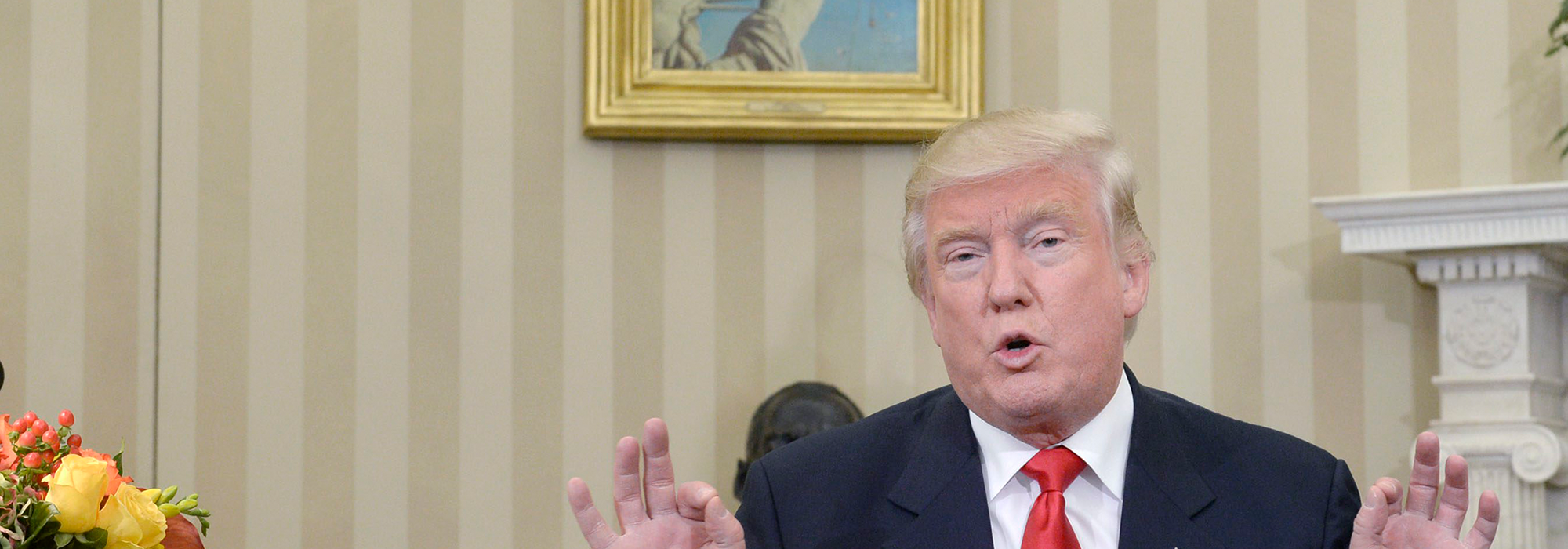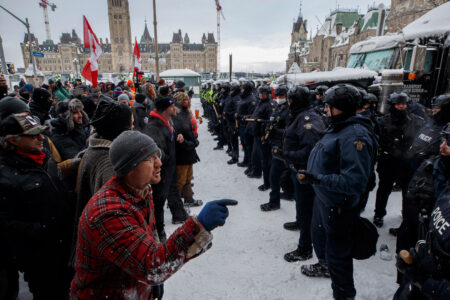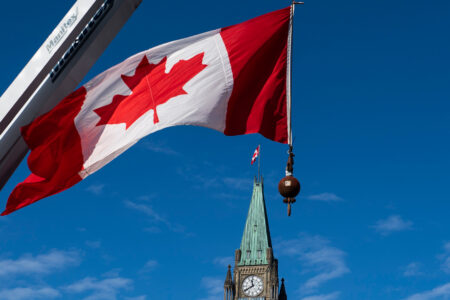
Many observers see similarities among Donald Trump’s victory in the American presidential election, the Brexit vote in the United Kingdom, and right-wing populist or conservative-nationalist parties in Europe; for example, the National Front in France, the Freedom Party of Austria, and Jobbik in Hungary. Is any of this relevant to Canada?
Left-leaning Canadian politicians are already condemning anything they don’t like as Trumpism, recalling the days of Bush Derangement Syndrome, when Canadian conservatives were automatically labelled “clones of Dubya.” And indeed, some Conservative politicians are echoing selected Trumpian themes, as in Kellie Leitch’s misguided call for a values-test for would-be immigrants to Canada (I fear I would be among the first immigrants to be deported!). But there will be no full-fledged New Right in Canada, because the conditions driving these developments elsewhere are largely absent here.
A major factor behind the rise of the New Right in Europe is the confrontation with political Islam. Europe is close to North Africa and the Middle East, where political convulsions are producing millions of refugees. Many refuges seek safety in Europe, even though they may have little desire to assimilate into Europe’s Christian or post-Christian secular civilization. Major cities such as Brussels have no-go areas, into which even the police are reluctant to enter except with overwhelming force. Spectacular terrorist incidents are common. European nations, from Spain to Austria and Poland to Bulgaria, have historical memories of fending off invasions from the Moors and the Turks. It is thus no surprise that many voters are turning to political parties that promise a stronger stand against the threat of Islamism.
In the United States, the confrontation with radical Islam takes a somewhat different form. Islamic refugees are not close at hand, but the international role of the United States has involved it in endless wars and proxy conflicts in Islamic territory — under both Republican and Democratic administrations — such as Somalia, Iraq (twice), Afghanistan, Syria, Libya, and Yemen. In addition to that, there is the problem of 11 million illegal immigrants, who have mostly come across the long and porous border with Mexico.
None of these conditions apply to Canada, which is located far from the trouble spots of the Middle East and Latin America. We annually admit a large number of immigrants relative to the size of our population, but the majority are selected through the point system or come through family reunification. We even get to choose many of the refugees who resettle here. Illegal immigrants are a minor problem of law enforcement, not a serious social issue. We have no common border with a major source of refugees or economic migrants. Our cities do not have no-go zones of Muslims or any other immigrant group. Episodes of Islamic terrorism have occurred, but on a much smaller scale than in other Western countries.
No major Canadian political party in recent decades has taken an anti-immigrant position. Of course, there are debates over immigration policy, such as the weighting of economic vs. humanitarian considerations, or how to manage refugee flows, but all parties support the concept of large-scale immigration and actively compete to win the support of immigrant voters. Internationally, we have participated in some of the Middle Eastern wars, but never as major combatants.
In the United Kingdom, the surrender of sovereign authority to the European Union produced a backlash, which led to the Brexit referendum. (Fans of the “Yes, Minister” TV series will remember Jim Hacker’s defence of the British sausage). But again, this has no relevance to Canada. NAFTA is a trade agreement with the United States and Mexico. It does not involve surrendering sovereignty and it did not create a North American machinery of government.
Finally, Donald Trump’s success in the United States was partially driven by growing income inequality. His margin of victory came from states such as Pennsylvania, Ohio, Michigan, and Wisconsin, which have been particularly hard hit by de-industrialization and job loss. The phenomenon is real enough, even if unfair trade agreements are not the real cause. Canada, however, is different. The Gini index of inequality rose in Canada during the 1990s but stabilized in the 21st century, while American indicators of inequality have kept on rising. We are closer to European social democracies than to the United States in levels of poverty, concentration of wealth in the hands of the “1 percenters,” and overall income distribution. Thus there is not the same basis for a political movement based on economic ressentiment as there is south of the border.
For all these reasons, the wave of populist politics taking place in the United States and many European countries is not likely to wash up in Canada. But over a longer time frame, Canada has a powerful tradition of populism extending back about a century, which includes the Progressive Party, the Social Credit League, and the Co-operative Commonwealth Federation. The most recent large-scale manifestation was Preston Manning’s Reform Party, founded in 1987. Reform’s success was due to the inability of the Laurentian elites to control runaway deficit spending and to put up effective resistance to Quebec separatism. The Reform Party subsequently entered mainstream politics through Stephen Harper’s merger with the Progressive Conservative remnant; but, as Manning once said, when populist movements die, “the seeds go back into the ground.”
One thing is reasonably certain: the next Canadian populist movement, when it does emerge, will take the form of a new political party. A Trump-style takeover of an existing party is almost inconceivable in Canada, because party members choose the leader; there is no primary system that would allow an outsider like Trump to surge to the forefront. Unlike an American president, a Canadian prime minister is not elected as an individual but is the leader of a party with a dominant number of seats in the House of Commons. There is nothing like the American primary system that allowed Trump to run for president under the banner of a major party.
Party discipline has proved to be essential to parliamentary government, but every public opinion poll shows that voters dislike it. Thus, political mavericks frequently attempt to found new parties representing views that can’t get a fair hearing in the major parties. Most such attempts fail, but talented leaders such as William Aberhart, Tommy Douglas, Preston Manning and Lucien Bouchard occasionally manage to upset the applecart of conventional wisdom. Populist rebellions are the main source of creativity in Canadian political history, but the Laurentian elites always condemn them, unless and until they can co-opt them. Instead of fear-mongering about the falling sky and the end of civilization as we know it, elites here and abroad would be better advised to seek to understand how their own failures give rise to these populist movements.
Photo: President-elect Donald Trump looks on in the Oval Office of the White House during a meeting with U.S. President Barack Obama in their first public step toward a transition of power November 10, 2016 in Washington, DC. Douliery Olivier/ABACA USA
Do you have something to say about the article you just read? Be part of the Policy Options discussion, and send in your own submission. Here is a link on how to do it. | Souhaitez-vous réagir à cet article ? Joignez-vous aux débats d’Options politiques et soumettez-nous votre texte en suivant ces directives.







